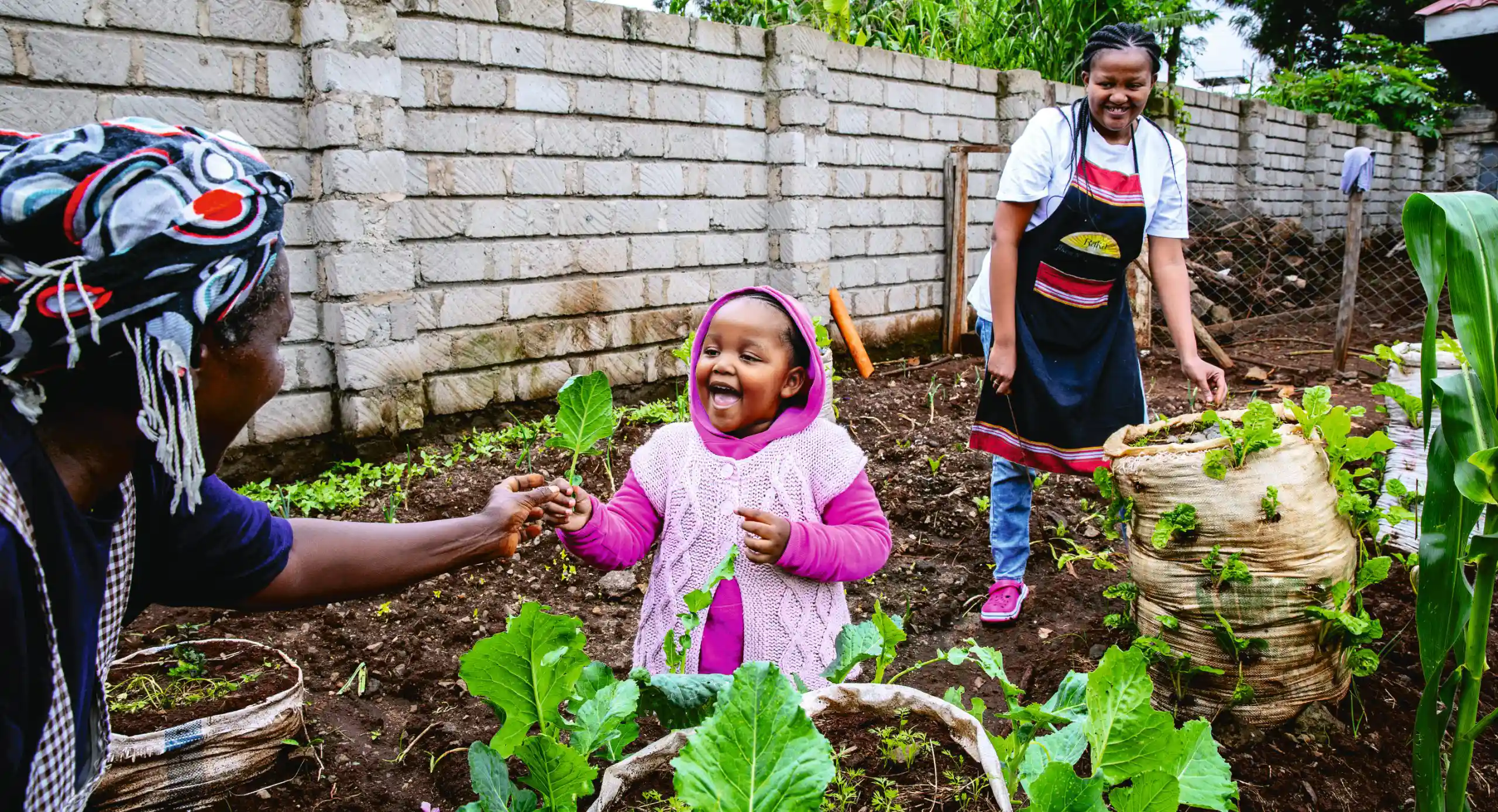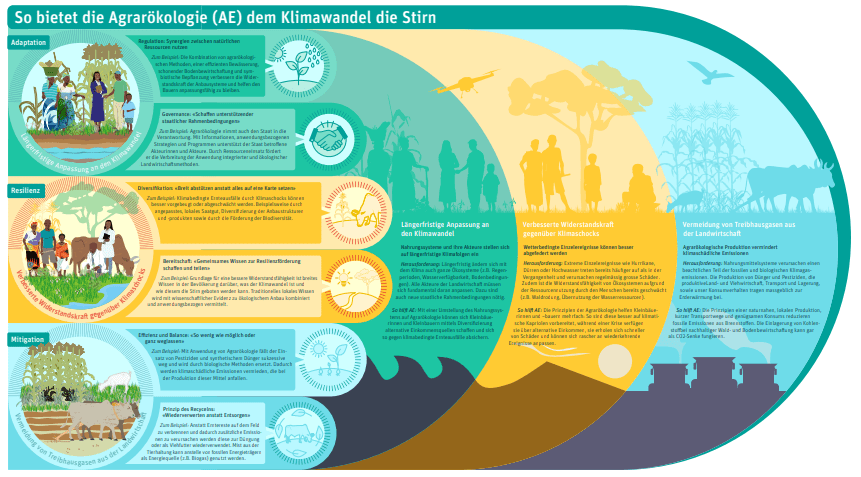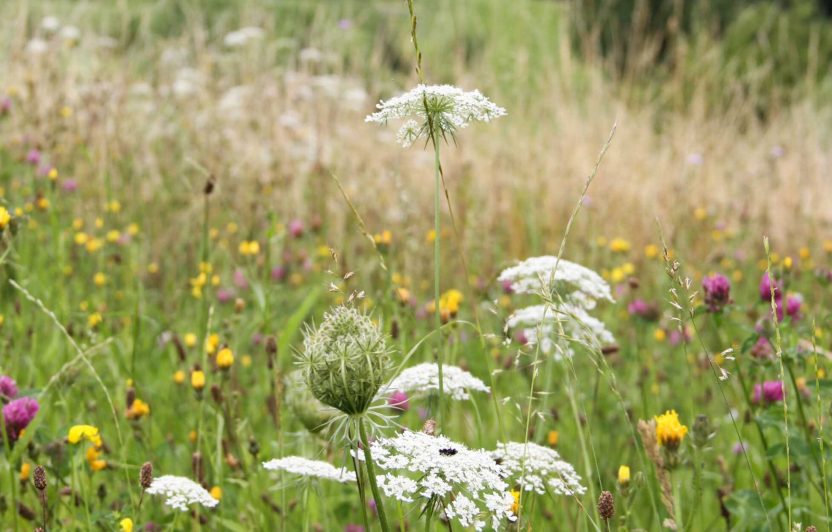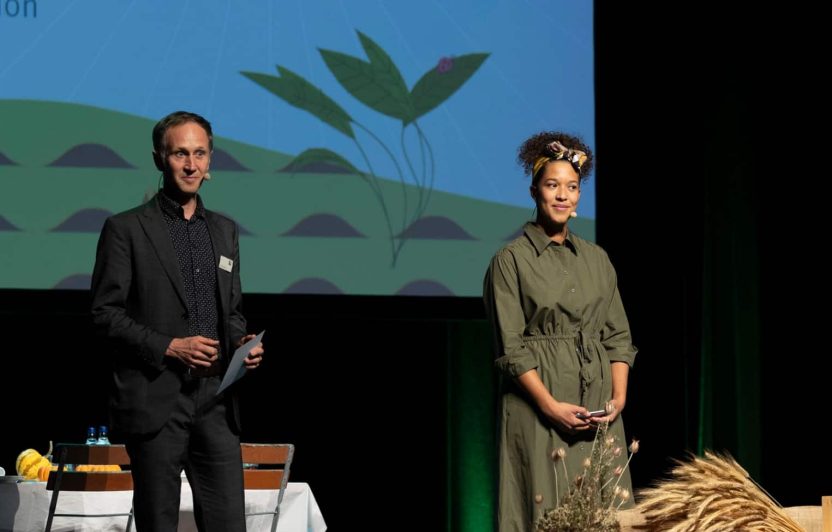
Numerous media sources published articles early last month with provocative titles like “Going organic harms the climate”. The Tages-Anzeiger, for example, published a piece on November 10 titled “100% Organic would increase CO2 emissions” («100% Bio erhöht den C02-Austoss»). The articles presented a new study from England that compares conventional with organic agriculture. The researchers found, in line with many other studies, that organic farming requires a larger area of land than conventional farming to produce the same amount of food, therefore producing more C02. But does organic farming really harm the climate?
Swiss study creates clarity
Adrian Müller from the Research Institute of Organic Agriculture FiBL came to a different conclusion in his study two years ago. His study shows that organic farming can play an important role in a sustainable food system, in combination with reduced consumption of animal products, avoiding concentrated livestock feed and reduced food waste. The world’s food security would be ensured even with over 9 billion people in 2050, agricultural land area would not increase, greenhouse gas emissions would be lowered and the negative effects of today’s intensive food systems, such as nitrogen surplus and high pesticide exposure, would be greatly reduced.
Agroecology advocated by the Intergovernmental Panel on Climate Change
At the end of August, the International Panel on Climate Change (IPCC) issued its first statement on the role of agriculture in climate change. In a drastic warning to the public, climate experts concluded that limiting warming to within 1.5 degrees of pre-industrial times will not be possible if food systems are not improved quickly. The livelihoods of farmers in the Mediterranean and Africa would be especially threatened by the consequences of climate change. This is why established knowledge about sustainable cultivation methods must be passed on to developing countries as quickly as possible. Biovision fully agrees with this statement, as is outlined in our strategy that we have been successfully implementing for over 20 years. (See a more complete report here.)
Our consumption habits hurt the climate!
The FiBL study and the IPCC report cited above, along with other studies by renowned institutes and organisations*, show what is necessary to reduce C02 emissions in food systems: a rapid change in consumer behaviour. Without this change, we will not be able to chart a favourable course for the climate.
*For example, the High Level Panel of Experts (HLPE) on Food Security and Nutrition of the Committee on World Food Security (CFS) 2019 report or the September 2018 study by the independent French research institute IDDRI.
New Biovision study at COP25 in Madrid
On December 2, representatives of governments, non-governmental organisations, research institutions and civil society will meet at the COP25 Climate Change Conference in Madrid. Biovision will present a new study at several events there. The study examines what small farming families and politicians in sub-Saharan Africa who are affected by the climate crisis can do to secure their food security and their future despite global warming. The study was conducted jointly with the World Food and Agriculture Organization FAO and FiBL. We will present the study in detail at the beginning of 2020 on our website.
What Biovision does for the climate at home and abroad.
- Biovision’s CLEVER program for sustainable consumption educates and gives practical tips on how we can contribute to more sustainability and climate protection when shopping and in our eating habits.
- In Switzerland, Biovision is committed to greater sustainability and a change of course in food systems.
- In this interview, Martin Herren (co-author of the Biovision climate study, see section above) from Biovision discusses the positive interactions between agroecology and climate change and explains the connections clearly using an infographic.






